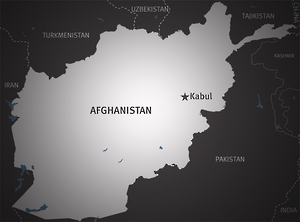Afghanistan: Appoint Rights-Respecting Intelligence Chief
Asadullah Khalid, Linked to Abuses, Should Not Head Agency Implicated in Torture
The Afghan government should drop reported plans to appoint a senior official linked to torture as head of the country’s main intelligence service. Numerous and credible reports allege that Asadullah Khalid, while governor of Kandahar province and in other posts, commanded forces that committed grave human rights violations.

On August 29, 2012, the Afghan presidential palace announced the removal of the chief of Afghanistan’s main intelligence service, the National Directorate of Security (NDS). President Hamid Karzai said through a spokesman that Rahmatullah Nabil was removed because the president did not want anyone to remain in that position for longer than two years. Several media outlets reported that Karzai intends to appoint Khalid to replace Nabil.
“The NDS is desperately in need of reform to end its use of torture,” said Brad Adams, Asia director. “President Karzai should use the appointment of a new NDS chief to demonstrate his commitment to ending torture by choosing someone whose integrity and commitment to human rights is above reproach.”
The NDS has repeatedly come under criticism for its use of torture. An October 2011 United Nations report found that almost half of all conflict-related prisoners interviewed who were held by the agency had alleged being tortured while in custody. The study found evidence of systematic torture at five of the agency’s jails.
The most common forms of abuse were suspension – being hung by the wrists for lengthy periods – and beatings with rubber hoses, electric cables, wires, or wooden sticks, often on the soles of the feet. There were also reports of electric shock, twisting of genitals, prolonged standing, and removal of toenails.
The Afghan government promised reforms in response to the UN report, but the government has not prosecuted or dismissed any of the officers involved.
Khalid is currently the national minister of border and tribal affairs, and has held other national security posts. He was previously the governor of Kandahar, and earlier of Ghazni.
Credible allegations have been made that forces under his authority operated a private prison in Kandahar from 2005 to 2008 in which detainees were tortured, including with beatings and electric shocks. Allegations about abuses have also been made to UN and local Afghan human rights groups. Khalid has also been accused of corruption and high-level involvement in Afghanistan’s narcotics trade. He has denied allegations of wrongdoing.
Many of the allegations of detainee abuse in Kandahar were corroborated in a 2008 report by Canada’s Military Police Complaints Commission, publicly released in 2012. The report investigated allegations that Canadian military personnel stationed in Kandahar knew about the abuses in the prison under Khalid’s authority but failed to report them. Canadian authorities interviewed detainees in the facility and documented multiple cases of torture. Canada’s deputy ambassador to Afghanistan testified about serious abuses linked to Khalid during an appearance before Canada’s House of Commons, in November 2009, describing reports of torture in prisons under Khalid’s command, both in Ghazni and Kandahar.
“A dark cloud of serious accusations has hung over Asadullah Khalid’s head for many years,” Adams said. “Appointing him as NDS chief would send a disturbing message that the Afghan government has no intention of ending torture.”
Source: Human Rights Watch
- 479 reads
Human Rights
Ringing FOWPAL’s Peace Bell for the World:Nobel Peace Prize Laureates’ Visions and Actions

Protecting the World’s Cultural Diversity for a Sustainable Future

The Peace Bell Resonates at the 27th Eurasian Economic Summit

Declaration of World Day of the Power of Hope Endorsed by People in 158 Nations

Puppet Show I International Friendship Day 2020

